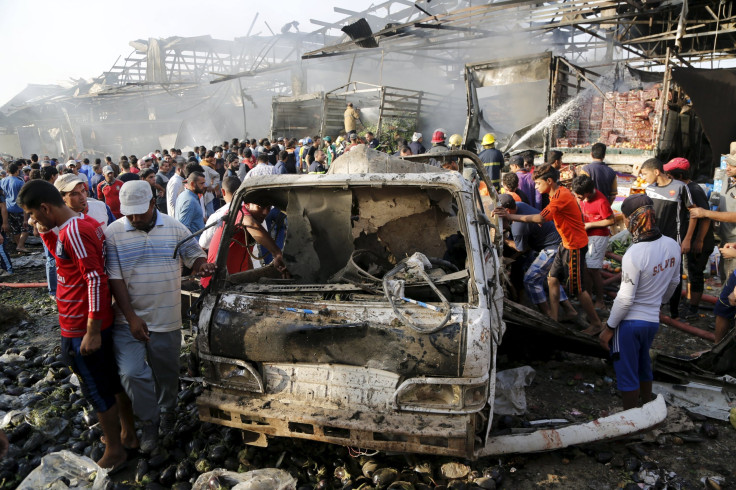Truck Bomb Kills At Least 60 In Baghdad's Sadr City

BAGHDAD (Reuters) - At least 60 people were killed and 200 wounded in a blast on Thursday at a market in Baghdad's Sadr City district, police and medical sources said, one of the largest attacks on the capital since Prime Minister Haider al-Abadi took office a year ago.
There was no immediate claim of responsibility for the bombing in the Shi'ite Muslim neighborhood, but Islamic State, Sunni militants who seized swathes of northern andwestern Iraq last year, regularly send bombers into the capital.
"A refrigerator truck packed with explosives blew up inside Jamila market at around 6 a.m. (0300 GMT)," police officer Muhsin al-Saedi said. "Many people were killed and body parts were thrown on top of nearby buildings."
The market in the northeastern suburb is one of the biggest in Baghdad selling wholesale food items. A Reuters witness at the site saw fruit and vegetables mixed with shrapnel littering the blood-soaked blast crater.
Smoke rose from charcoaled bits of debris. Rescuers pulling bodies from the rubble waded through sheet metal that had formed the walls and roofs of vendors' stands.
Angry people gathered at the site of the explosion, some crying and shouting the names of their missing relatives and others cursing the government.
"We hold the government responsible, fully responsible," witness Ahmed Ali Ahmed said, calling on the authorities to dispatch the army and Shi'ite militias to man checkpoints in the capital.
Abadi took office last summer following the army's collapse in Islamic State's takeover of the northern city of Mosul that left the Baghdad government dependent on the militias - many funded and assisted by neighboring Iran - to defend the capital and recapture lost ground.
Security forces and militia groups are targeting Islamic State in Anbar province, the sprawling Sunni heartland in western Iraq, while Abadi has fixed his attention in recent days on a sweeping reform agenda aimed at the largest overhaul of the political system since the end of U.S. military occupation.
© Copyright IBTimes 2024. All rights reserved.











